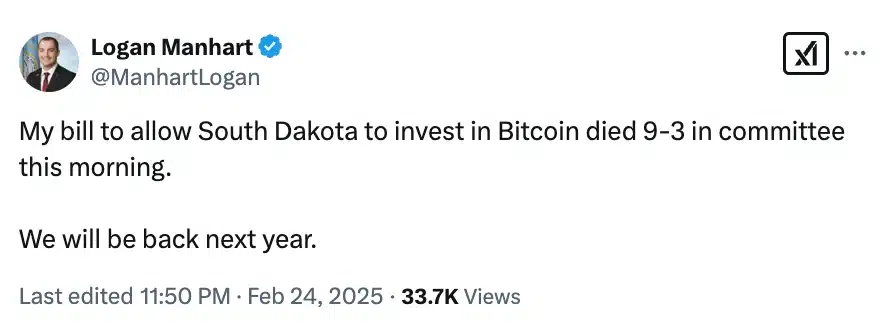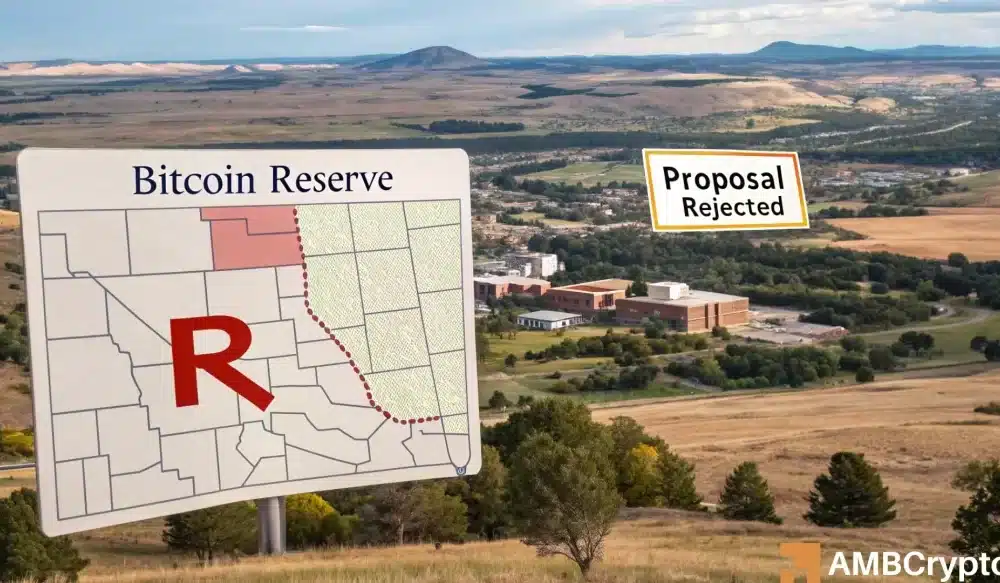- South Dakota stopped his Bitcoin investment account as a result of volatility and legal concerns.
- Other states such as Florida and Arizona consider comparable Bitcoin reserve legislation.
In a recent step, South Dakota hit a road barrier in his potential trip to Bitcoin [BTC] Adoption, as legislators decided to stop progress on a bill that could have enabled the state to invest in the cryptocurrency.
South Dakota takes a step back
During a meeting on 24 February, the household and energy committee of the state voted To postpone HB 1202 to the 41st day of the legislative session – a movement that has effectively killed the proposal because the session only lasts 40 days.
The bill, introduced by the State Representative Logan Manhart on January 30, was intended to change existing regulations to allow up to 10% of South Dakota’s public resources to be invested in Bitcoin.
Despite this setback, Manhart has announced plans to re -introduce the legislation in 2026, so that the hope remains alive for the future involvement of the state in the developing digital assets space.


Source: Logan Manhart/X
The movement of South Dakota reflects recent developments in Montana, where the House made decisive legislation with an outcome of 41-59.
Possible concerns of the legislators
The decision to postpone HB 1202 in South Dakota was largely due to concern about the inherent price volatility of Bitcoin and the absence of clear federal regulations.
Critics of the bill argued that the allocation of public resources to such an very unpredictable actual financial risks could be.
Matt Clark, the state investment officer of South Dakota, repeated these sentiments by questioning the lack of intrinsic value of Bitcoin and emphasizing the potential dangers of exposing state investments to extreme market fluctuations.
Clark said,
“Bitcoin has no underlying physical use. It does not generate income, just like raw materials or other types of assets. “
The status of other states in the Bitcoin Reserve Race
Although HB 1202 finally failed, the conversation around the State brought by the State is by no means over.
States such as Florida, Missouri and Arizona are already investigating similar legislative efforts, indicating that the debate about integrating Bitcoin in public financial strategies will probably intensify in the coming years.
That is why it is still to be seen how the landscape will evolve, with various states that explore Bitcoin reserves and the vision of Donald Trump to set up a strategic Bitcoin reserve in the US.

